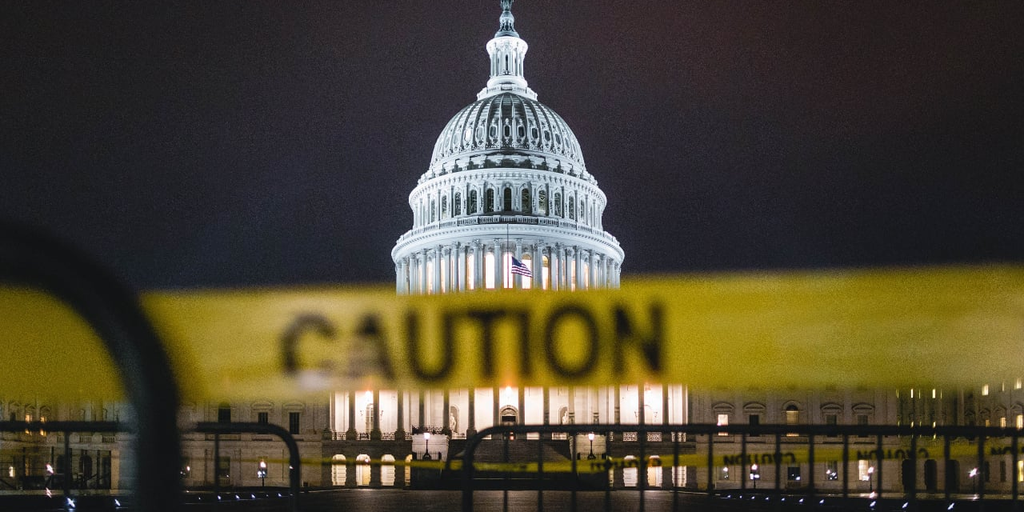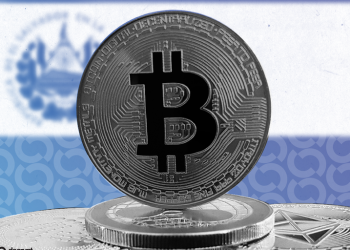
As crypto-related bills barrel through Congress with the ambitious goal of passage by August, the potential implications of that legislation are only beginning to crystallize.
One such bill, for instance, would seek to amend foundational U.S. securities laws to formally carve out most crypto assets from the definition of “security”—a bold move with little precedent in the history of Congress, at least since such laws were first written at the outset of the New Deal in the 1930s.
The bill, dubbed the Securities Clarity Act, was reintroduced in the House last week by House Majority Whip Tom Emmer (R-MN), a noted crypto proponent. Emmer recently told Decrypt he intends to have the legislation rolled into a crypto market structure bill, known as FIT21—the passage of which has been deemed a top priority by congressional leadership and the White House.
A version of FIT21 already passed the House with bipartisan support last year. But Emmer and other top Republicans believe the crypto industry and its allies can now push for an even more advantageous regulatory framework, and want to rework the bill.
“The bill that Patrick McHenry put together was a great bill, and I was proud to support it,” Emmer told Decrypt last week, referencing the prior House Financial Services Committee chair. “But let’s face it: there’s a new administration. There’s a new attitude towards the crypto community and digital assets.”
Taking the SEC out of crypto
One key concession Emmer wants to extract from this opportune moment is eliminating the discretion of federal agencies to determine which crypto assets are securities, and which aren’t. The version of FIT21 passed last year would have seen the SEC and CFTC work together to create a new framework for evaluating the security status of digital assets.
But the Securities Clarity Act would avoid that process by going back and amending key securities laws, including the foundational Securities Act of 1933 and Securities Exchange Act of 1934, to explicitly exempt blockchain-based, fungible tokens from securities regulation.
That means tokens like Ethereum, Solana, Cardano, XRP, and potentially thousands of others—many of which that were, until very recently, the subject of SEC enforcement actions—would be formally exempt from SEC oversight.
“With FIT21 we had to make some concessions, where the SEC will determine whether you’re a security or not a security,” Emmer said. “I like the Securities Clarity Act because it takes that discretion out of the system. That’s what we’re going to fight to add.”
Some experts say the move would cause ripple effects that extend far beyond crypto—and could implicate the foundations of securities regulation that have underpinned the U.S. economy since the New Deal.
The bill would, among other things, amend a key paragraph in the 1933 Securities Act defining a “security”; and while that language has been changed before via legislation, those edits typically expanded the definition of securities to keep up with new financial products. They appear to have never restricted the definition of a security.
Put more simply: that key paragraph of America’s defining securities law does not currently state that any sort of asset is not a security. The Securities Clarity Act would change that.
Turning securities law “on its head”
Corey Frayer, director of Investor Protection for the Consumer Federation of America, believes that creating such an exemption could ultimately weaken existing securities regulations not just for crypto, but for other non-crypto markets as well.
Frayer—who previously served as senior advisor on crypto policy to former SEC chair Gary Gensler—is adamant that if lawmakers add an explicit carve out to America’s legal definition of security, they will effectively create a shortcut for other industries to circumvent securities regulation.
This could be accomplished, Frayer said, by bringing off-chain assets on-chain to enjoy the same protections as crypto, or by arguing in court that a non-crypto financial product possesses enough similarities to a now-exempt crypto one, that it should receive the same legal treatment. In other words, Tesla could, in theory, create a tokenized version of its stock and then argue the trading of those assets should be exempt from SEC scrutiny.
“The best case scenario is that traditional markets all move to the lesser regulated crypto asset markets as proposed in the bill,” Frayer said. “In the worst case scenario, all securities markets… are brought into the same deregulated regime, undermining 90 years of security law and regulation.”
The bill’s supporters insist they are not changing America’s securities laws—only clarifying them. For years under the Biden administration, they say, the SEC attempted to destroy the crypto industry by inaccurately claiming that on-chain assets were by their nature illegally unregistered securities. This bill would prevent such a scenario from happening again by making clear that on-chain, fungible tokens with potential for peer-to-peer transfer are not, by their nature, securities.
The new legislation also includes a clause stating that any on-chain asset that meets the definition of an asset previously declared by the 1933 Act to be a security—say, a stock or bond—is still a security. A source familiar with the bill’s creation told Decrypt this clause was added specifically to prevent the legislation from implicating any existing securities regulations pertaining to non-digital assets. That would mean Tesla and other publicly traded companies would not be able to circumvent existing securities by simply pivoting to crypto.
Frayer, though, doesn’t buy the argument. He maintains that securities regulation has, for decades, relied on the holistic discretion of regulators to determine whether any given asset is a security or not, with the aid of tools like the Supreme Court’s Howey test.
It was always clear, Frayer said, why the U.S. government never relied solely on black lines to strictly define which assets were securities, and which were not—because it would be very easy then to “game those lines” by creating novel financial instruments that acted a lot like a stock, for example, but possessed one or two features that made them not quite a stock, and thus evaded regulation.
The Securities Clarity Act, Frayer said, would turn that decades-long operating procedure “on its head.”
“That’s where the dragons are”
Other legal experts disagree. Drew Hinkes, a partner at Winston & Strawn specializing in digital assets and securities regulation, views the bill as much more limited in its potential impact. As he sees it, the legislation would simply make clear that digital assets are not automatically, by their nature, securities—a view shared by judges who have presided over crypto-related SEC lawsuits in recent years.
“This appears to crystallize the view taken by the courts in Telegram and Ripple that the tokens sold in an investment contract are not automatically also securities,” Hinkes told Decrypt, referencing judgments in SEC lawsuits suits against both companies.
That interpretation gels more with the stated goal of the Securities Clarity Act, and would still allow for the theoretical reality of tokenized securities or other on-chain products that are still regulated by the SEC.
But Hinkes concedes that determining what sorts of on-chain assets should be considered tokenized securities, and which shouldn’t, involves many murky questions that have yet to be tested in the American legal system, including whether tokens can carry legal rights.
“The law on this point is not clear and would benefit from some further evolution,” he said.
One legal expert familiar with the bill put it more bluntly when discussing how little precedent exists to determine what sort of asset would constitute a tokenized security.
“This is the part where the map border gets fuzzy and it says, ‘That’s where the dragons are,’” they said.
The Securities Clarity Act is just one piece of the multi-pronged effort underway in Washington to formally legalize the crypto industry and integrate it with traditional finance. As that process pushes forward at breakneck speed, some regulators have expressed concern it could risk lasting damage on the broader American financial system.
Last month, at the SEC’s first ever crypto roundtable, Commissioner Caroline Crenshaw urged attendees—and her fellow commissioners—to proceed with caution as they retool existing agency policies to benefit the digital assets industry.
Crenshaw, the lone Democrat remaining on the Commission, is now effectively powerless to change the Commission’s direction on crypto. She was supportive of former SEC Chair Gary Gensler’s lawsuits against numerous crypto companies, and her renomination to the agency was so vigorously protested by the industry in December that Senate Democrats eventually pulled a vote on the matter.
Before a room of crypto executives and lawyers in late March, Crenshaw argued, her voice wavering at times, that the stakes of the industry’s project could not be higher—given they were tinkering with the core regulatory structure that has underpinned the entire $120 trillion U.S. economy since the 1930s.
“At the foundation of that structure is the definition of security,” Crenshaw said. “We cannot poke holes in the foundation without expecting the walls may crack.”
Daily Debrief Newsletter
Start every day with the top news stories right now, plus original features, a podcast, videos and more.
#Crypto #Legislation #Free #Industry #SEC #OversightBut #Critics #Warn #Pandoras #Box



















